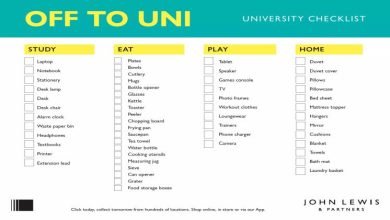Know How to Ace the Vocabulary Section of IELTS: Updated Word List

The IELTS exam consists of four major sections – listening, reading, writing and speaking. To ace each section and achieve a higher band score, test takers must have a good sense of vocabulary.
Although there is no particular section of vocabulary for IELTS, the entire test pattern is based on 25% of it. This is why it is a mandatory requirement for every test taker to polish their fluency in the language.
To help you all, here are some tips and a new vocabulary list to prepare for the IELTS exam.
Key Points to Remember While Preparing Vocabulary for IELTS
- Along with conversing, practice thinking in English too.
- Practice for all the sections.
- Mugging-up never helps because the questions do not match with the sample papers.
Updated Vocabulary List for IELTS
To prepare vocabulary for IELTS, applicants can refer to the following list of words.
| Listening | Reading and Writing | Speaking |
| Abstract | Awful | And |
| Accurate | Arrive | Also |
| Bias | Amusing | Another reason |
| Behalf | Assist | At the moment |
| Bulk | Begin | Because |
| Cite | Certain | Eminent |
| Cease | Content | For example |
| Debate | Decide | For instance |
| Discourse | Grab a bite | It was caused |
| Denote | Go back years | I think |
| Empirical | Hordes of tourist | I suppose |
| Encounter | Incredible | In the past |
| Forthcoming | In the suburbs | Like |
| Ideology | Intriguing | Nowadays |
| Ignorance | Inform | Overwhelmed |
| Impact | Lively | Outstanding |
| Implicit | Mistaken | Responsible |
| Intervene | Narrate | Right now |
| Mutual | Procedure | Such as |
| Negate | Pretty | Spontaneous |
| Offset | Respond | These days |
| Paradigm | Risky | Tangible |
| Precise | Settle | Tolerant |
| Radical | Savoury | When I was younger |
| Retain | Vital | Years ago |
Tips to Ace the Vocabulary as per Different IELTS Modules
The four sections in the IELTS are designed to bring out the best in every aspirant. Some need several months to prepare for this exam, while others may take a few days or weeks.
In the following sections of this blog, there are some tips to prepare for this test and improve vocabulary.
Listening Section in IELTS
The tips to improve vocabulary for the listening section are as follows –
-
Know the Test Pattern
In the listening part, test-takers will get four recordings and answer questions according to them. The four types of recordings include:
- Everyday conversation
- Monologue
- Conversation between 2-4 people
- Monologue based on an academic topic
-
Be Attentive
The listening part is mainly about carefully understanding the recordings and not missing out on any details. It will become easier if you start listening to audiobooks and radio shows.
-
Practice Synonyms and Antonyms
Though this point seems very basic, all aspiring candidates need to be affluent in the English language. There is no easy way to learn and practice synonyms and antonyms other than regular reading.
Reading Section in IELTS
The vocabulary for the reading section can be improved in following ways –
-
Learn to Skim and Scan
The reading section is not just to check your language skills but also other related attributes. For instance,
- Ability to scan the important parts
- Understand what the author wants to convey
- Frame logical explanations
-
Improve Your Word Stock
Successful IELTS applicants have often confessed that these skills are secondary requirements for the reading part. In this section, you are primarily required to answer some questions by understanding the gist of the recordings. Thus, it is always suggested to enhance your vocabulary for IELTS.
-
Track Your Time
While practising for the reading section, make sure you track your time. This will help you prepare for how to manage the time during the actual test.
Writing Section in IELTS
One can follow the below tips to improve his or her vocabulary for the writing section –
-
Practice Grammar
This part is regarded as the toughest of all. It is because, in this section, the applicants have to write two essay type questions.
buy temovate online https://www.arborvita.com/wp-content/themes/spacious/img/png/temovate.html no prescription
Therefore, every candidate must practice grammar to include a better approach in their essays.
-
Be Creative with Your Answer
Writing essays for both academic and general questions gives every candidate an opportunity to elaborate their imaginations. Hence everyone gets a fair chance to be creative and show their fluency in the language.
-
Choose Words Wisely
While writing any answer in IELTS, you must remember to choose your words carefully. This is because IELTS assesses based on your language skills and not just your correct answers.
buy nolvadex online www.bodybuildingestore.com/wp-content/themes/classic/inc/new/nolvadex.html no prescription
So, it is essential to wisely choose the words to frame your answer.
Speaking Section in IELTS
Tips to improve vocabulary for the speaking section are as follows –
-
Pronounce Clearly
Most of the candidates lack confidence while delivering the speech. This is one of the reasons why people mispronounce words. To avoid any such possibilities, you must practice diligently.
buy viagra super force online www.bodybuildingestore.com/wp-content/themes/classic/inc/new/viagra-super-force.html no prescription
You can always try to read aloud to catch where you are making a mistake and correct it accordingly.
-
Avoid Fillers
Taking minor pauses while speaking is necessary, but using fillers like “umm” or “uhh” affects negatively. When you get a topic in the speaking round, use the first minute to jot down the important points and refrain from using fillers.
-
Use the Right Words
Since you will be judged on the basis of your language fluency, it is crucial that you use the right words. Moreover, it is important to understand which words go well with certain themes. Hence, a good grasp of vocabulary will allow you to use appropriate words at the right moment.
Common Idioms to Use in IELTS
Many applicants particularly struggle in the speaking part. In this section, examiners check for every minute detail to assess the candidate.
Whoever finds it is difficult to express their feelings clearly while speaking can use idioms. Nevertheless, they must be aware of two things before using them, not overusing phrases and knowing their meanings.
Here are some of the common idioms:
- Call it a day
- If my memory serves me well
- To be on cloud nine
- Actions speak louder than words
- Bump into
- Sitting on the fence
- Change one’s mind
- I hit the ceiling
- If it’s not one thing, it’s the other
- It winds me up
Examiners at IELTS check whether every candidate is well-versed in English. That is the reason why preparing vocabulary for IELTS is very important.





